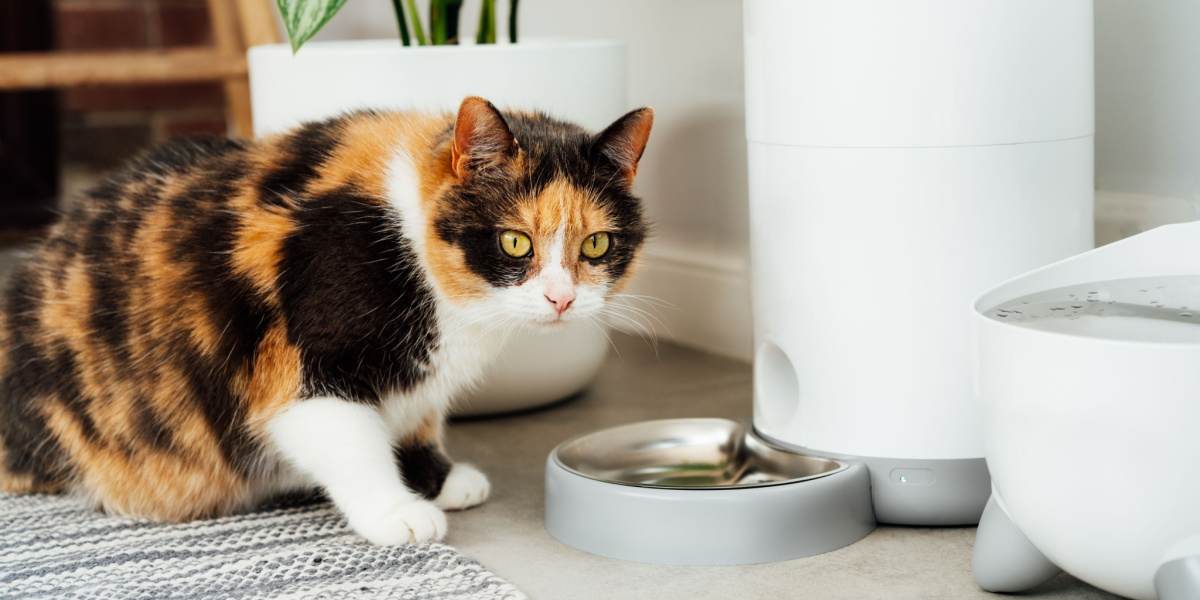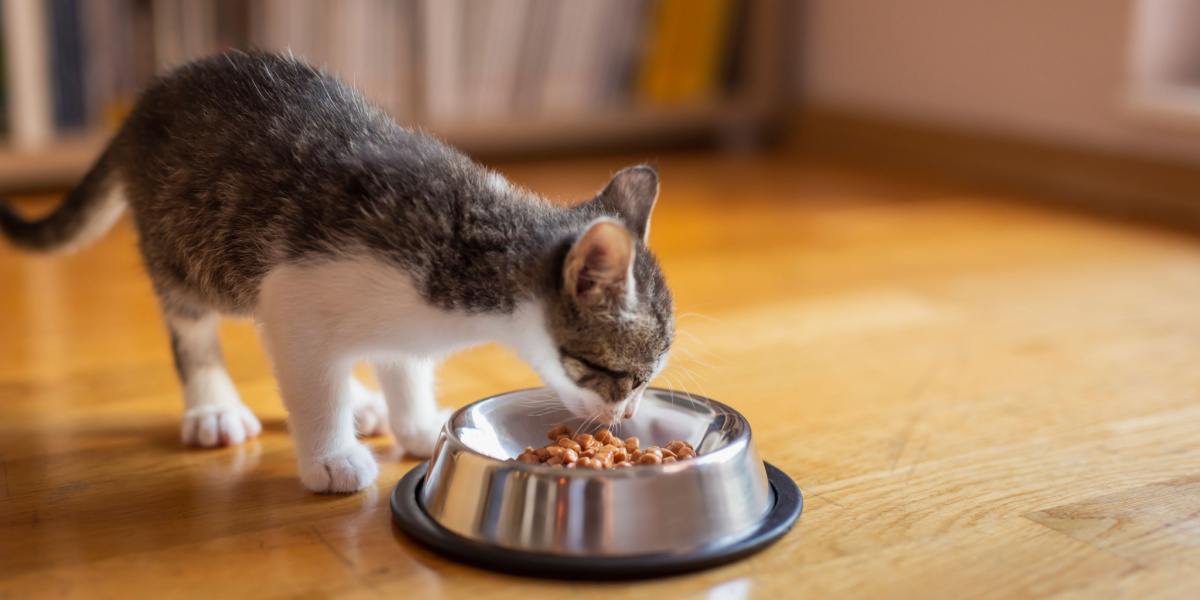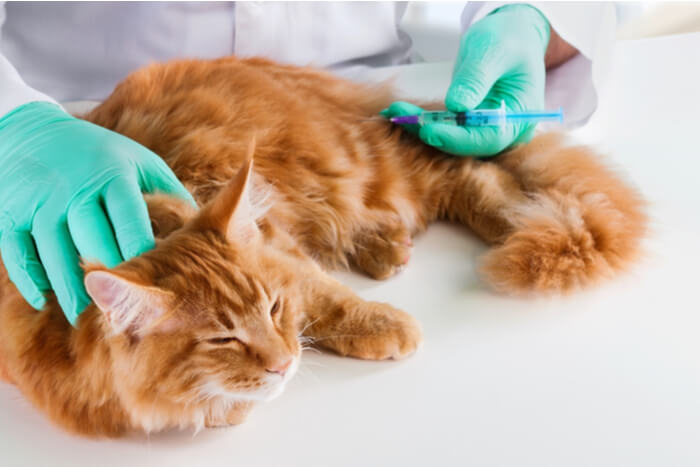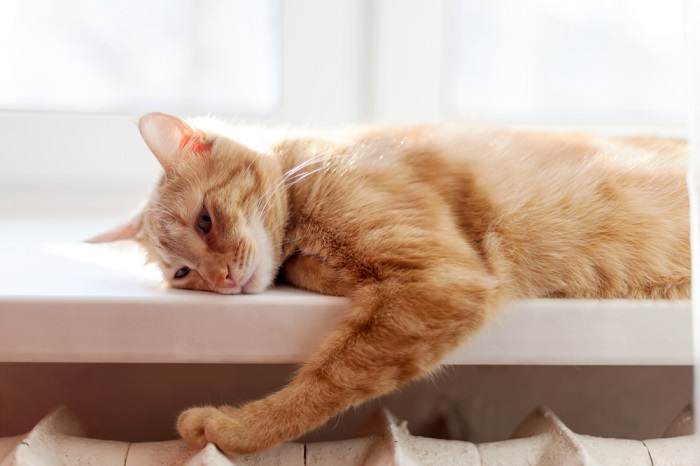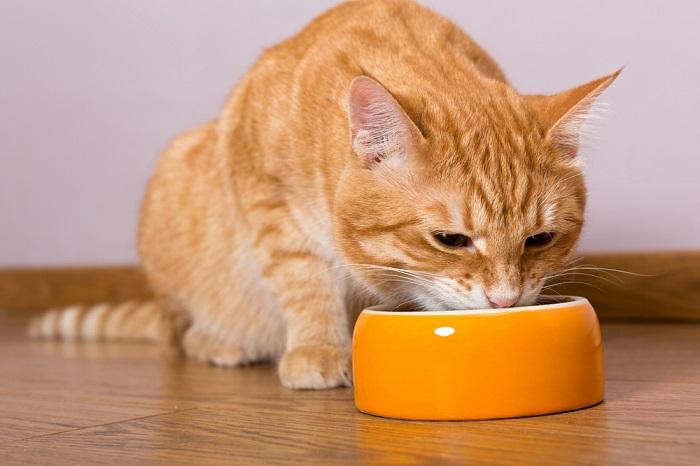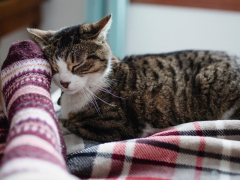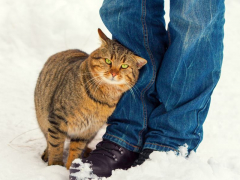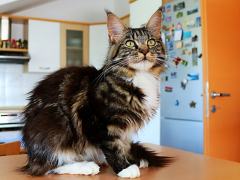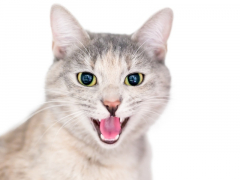Cats display habitual behaviors around their normal mealtimes when they start to feel hungry, and many cats can get pretty demanding to be served their meal! Typically, cats are grazers and like to eat small amounts throughout the day, but many cat owners choose to feed set meals during the day.
An increased appetite might indicate an underlying health problem or it could be a behavioral issue. Medical conditions such as diabetes, hyperthyroidism, or parasitic infection can increase a cat’s appetite, as can boredom and anxiety. Talk to your veterinarian to make sure your cat is eating the correct diet for their life stage and specific nutritional needs.Key Takeaways
If you’re finding yourself asking, “Why does my cat want to eat all the time?” you might need to take a look at your cat’s eating patterns as it might indicate a problem. Cats generally aren’t food motivated like dogs, and demanding food constantly could indicate a behavioral or medical problem that needs investigating.
Is It Normal for a Cat to Want to Eat All the Time?
As cat owners, we are all very in tune with our pet’s habits and what is normal for them, so any changes are usually obvious. We might notice a number of signs that let us know they are wanting to eat more than usual.
You might notice your cat begging and crying for food at their usual mealtimes, whining for treats, eating very quickly, or even trying to steal food from your plate. It’s always worth investigating any new food obsession or hunger.
Signs Your Cat Is Wanting To Eat More
You might have noticed that your cat starts hanging around the kitchen at the time they usually get fed, or starting to meow, rub around your legs, or sit by the food cupboard! This is a common behavior and a sign that cats can indeed determine the time. They can’t tell the time from a clock, but they do use internal and external cues to figure out the time of day.
Demanding food at a specific time might be normal for your cat, but if it’s a new behavior then it could be a sign that something isn’t quite right.
Why Is My Cat Begging for Food All the Time?
If kittens are asking for food they are legitimately hungry and might not getting the correct nutrients for growth.
Kittens are growing fast, and also burning off a lot of energy! It takes a lot of nutrients and calories to grow, so a kitten’s nutritional needs are much higher than an adult cat. Your kitten might be hungry all the time if they aren’t getting enough food, or if they are not on a kitten-specific diet that’s been formulated to meet their needs.
If your kitten is really hungry, they will scream and cry for food, and demand your attention. Kittens also need to be up to date with deworming treatments, which you should discuss with your usual veterinarian.
Common Causes of Increased Appetite in Cats
Causes of increased appetite in cats can be medical or behavioral in nature. Some common medical caused include:
1. Incorrect Diet
If your cat is still hungry and you feel you are feeding them generous portions, it might be a sign that they are not on the right diet or not getting enough food. Cats need to eat a complete and balanced diet that is suitable for their age, breed, size, and activity levels.
Your veterinarian can advise you on the most appropriate diet for your cat and help you plan portion sizes according to their body weight and activity levels.
2. Parasites
A common cause of an increased appetite in cats is worms. Many cats spend a lot of their time outdoors and are natural hunters, so they can catch worms from the wildlife they hunt. Intestinal parasites feed off your cat’s nutrition, so your cat is feeding not only themselves but the worms too, causing them to eat more food.
You might see worms in your cat’s stools, or your vet can do a simple test on a stool sample to see if your cat has worms. It’s easy to treat with a regular worming tablet from your veterinarian, which should cover both roundworms and tapeworms. Your vet can advise you on the most appropriate product for your pet.
3. Diabetes
Some diseases like diabetes cause increased hunger and thirst.
Diabetes mellitus is a common condition in cats and causes an increased appetite. Diabetes occurs when your cat’s body is no longer able to break down glucose from their food to use as energy—they don’t have enough insulin to do this. So, they will eat more to try and get enough useful energy.
Other symptoms of diabetes include increased urination and increased or excessive thirst. Diabetes is diagnosed with blood tests and needs ongoing management with insulin injections.
4. Hyperthyroidism
An overactive thyroid gland can cause your cat to want to eat all the time. This condition is common in middle to older age cats. The thyroid gland produces thyroid hormones that affect your cat’s metabolism, and when too much is produced, their metabolism increases making them hungry all the time.
Cats with hyperthyroidism tend to lose weight despite eating a lot. Other symptoms include increased or excessive thirst, increased urination, vomiting, and excessive vocalization.
A diagnosis can be made with a blood test and is easily treated with ongoing medication, surgery, or radioactive iodine.
5. Age
Your cats’ appetite and nutritional requirements will change throughout their life. Kittens require lots of food and nutrients to help their bodies grow, but older cats tend to be less active and consume less food. Always make sure you feed your cat a diet that is specific for their age, as these foods are carefully formulated to account for your cats’ different requirements throughout their life.
Behavioral Causes of Increased Appetite
If your vet rules out medical issues, your cat’s increased hunger could be behavioral. Some common non-medical reasons cats overeat include:
6. Boredom
Like people, cats can overeat when bored, which leads to unwanted weight gain.
Constantly demanding food might not necessarily be a sign that your cat is starving hungry, but rather that they have nothing else to do but eat or think about food. Cats need to be kept active and stimulated, especially if they spend most or all of their time indoors.
Being left alone for long periods of the day, or a lack of enrichment such as toys and games might lead your cat to become bored and think about food in order to attract your attention.
7. Anxiety
Anxiety, such as separation anxiety, could lead to cats demanding more food than normal. If your cat is demanding food as soon as you get home after a long day of work, that might be their way of demanding your attention and letting you know they’ve felt lonely and stressed during the day.
What Should I Do if My Cat Wants To Eat All the Time?
If your cat wants to eat all the time, the first thing you should do is get them checked over at the vet’s. It’s important to diagnose and treat any medical conditions that might be causing your cats’ increased appetite.
Your vet can also assist you in reviewing your cat’s diet, feeding schedule, and parasite control program. Some simple diet changes can often be all that’s needed. Always speak to your vet before changing your cat’s diet.
If your cat is hungry all the time due to a behavioral problem, you can introduce new games and toys and make a few changes to their feeding routine to help them to feel a bit more settled. If your cat is left home alone regularly for long periods, it can help to leave a small bowl of dried food down for them to graze on throughout the day.
It can also help to leave the cat flap unlocked if your cat likes to go outdoors, or have toys and scratching posts around the house for them to use. When you are at home with your cat, there are lots of fun ways to interact with your cat as well as stimulate their minds.
Final Thoughts
Talk to your vet about your cat’s diet to make sure they are getting the correct nutrients and feel satiated.
It can be frustrating and worrying if your cat is always hungry. There might be a simple explanation such as a lack of mental stimulation or separation anxiety. But there can also be some more serious medical causes that need to be identified and treated.
A trip to the vet will help you to figure out why your cat is hungry all the time and put together a suitable plan for your pet that might involve medical treatment or a simple change in their diet or environment.
Also Read: Why Does My Cat Hiss at My Partner?
Frequently Asked Questions
Why is my cat so obsessed with eating?
Medical conditions such as diabetes, hyperthyroidism, or parasitic infection can increase a cat’s appetite, as well as boredom and anxiety.
How do I stop my cat from wanting to eat all the time?
Your cat might need medical treatment for a health problem to control their appetite, or some changes to their diet might be needed. Addressing problems such as boredom and anxiety with enrichment and distraction can also help.
Why does my cat act like it’s starving all the time?
An increased appetite might indicate an underlying health problem that alters a cat’s metabolism such as diabetes or hyperthyroidism. A worm infection can also make them more hungry than normal, as well as behavioral issues such as boredom and anxiety.
Do cats pretend to be hungry?
Cats do not pretend to be hungry; they demand food because they are hungry or expecting their meal at a specific time.
